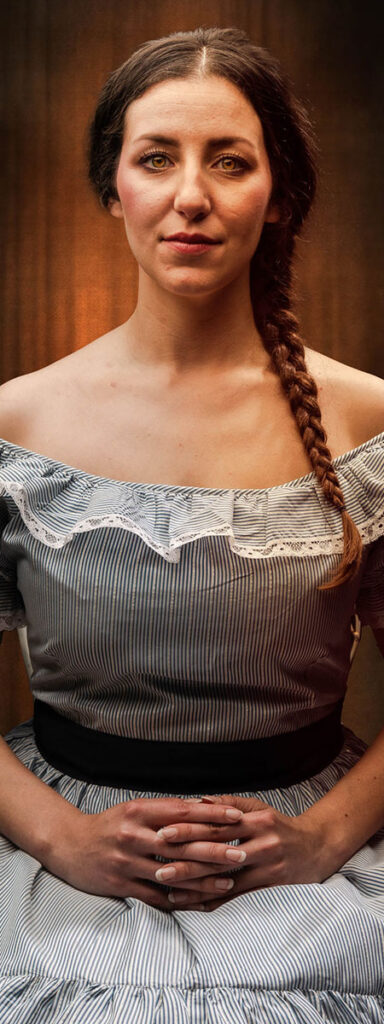Juliette Drouet
Juliette Drouet

JULIETTE DROUET: twenty-two thousand letters from “Juju” to her beloved “little man”.
When she first met the writer, Juliette Drouet was a very pretty and smart actress. She also showed a talent for attracting generous protectors, relationships that guaranteed Juliette a luxurious lifestyle, to the point of arousing intense jealousy.
Until the age of thirty-three, the actress achieved real success theatrically, charmed audiences with her sensitive acting and stunning clothes. She first met her author, Victor Hugo, at a reading of Lucrèce Borgia, in which she played the Princess Negroni. From then on, her life was to follow the great man’s timetable. She was subject to a twofold constraint: she was not allowed to go out without him, and had to write down every day what he called her “restitus”, the state of her health, feelings and occupations. Exasperated after her first six months under this arrangement, she burnt all the letters he had written her but soon got back to work. Their relationship was stormy, their mutual jealousy nourished on his part by Juliette’s past, on hers by Hugo’s countless infidelities. Hugo did not like tears, so she confided them in writing and consoled herself when he was away through the letters he sent her. They sealed their relationship with no witnesses nor priest by taking vows in which he undertook to support her and her daughter Claire, who died young, as did Victor Hugo’s daughter Léopoldine (aged 19 in 1843).
Juliette worked hard as a copyist. She collated the manuscripts, contributed to the documentation and collected testimonies, from which Hugo retained the most striking passages. A cousin’s account of Candlemas traditions is quoted almost identically in Les Misérables. Cosette’s childhood at the Picpus convent is based on Juliette’s at the ‘dames de Sainte-Madeleine’. The novel was interrupted “because of the Revolution”: Gavroche had to wait twelve years to join the barricades.
After the Coup d’état of the 2nd of December 1851, Hugo went to Brussels dressed as a worker, where Juliette soon joined him carrying her precious trunk of manuscripts.
In Jersey, where they had gone into exile, he was greeted with ovations and a banquet. He firmly refused to sacrifice her to his own reputation, as his wife had urged him to do, saying that she had saved his life and had always behaved with absolute discretion. Juliette endured the humiliations, the lies and the loneliness of exile, as long as she could contribute a little to his well-being and his work.
Juliette strongly criticised Hugo for his behaviour, but she had boundless admiration for his work. Everything he wrote was sublime, like his story of Waterloo: “France, losing Napoleon that day, gains Victor Hugo. Juliette identified wholeheartedly with the misfortunes of the poor, wanted to kill the dreadful Thénardiers, and begged for mercy for the tormented little boy in L’homme qui rit from the author who was, like God, “his persecutor”.
She would have liked to see him withdraw from the political arena to devote herself entirely to his work and a little more to herself, but she embraced all his battles willy-nilly, and accompanied his political development.
The large number of tributes and the crowd at Juliette Drouet’s funeral showed the extent to which she had won the public recognition she had been denied for so long.
Source: Dominique Goy-Blanquet on “Juliette Drouet, compagne du siècle” by Florence Naugrette.
